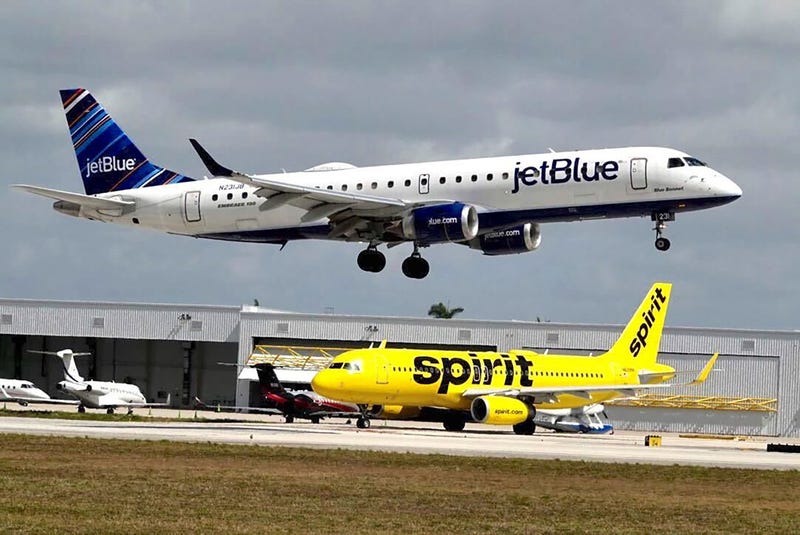
BLOOMBERG (NEW YORK) -- JetBlue Airways Corp. formally abandoned its pursuit of Spirit Airlines Inc. more than a month after a federal judge blocked the $3.8 billion acquisition on antitrust grounds.
The carriers reached an agreement to walk away after determining that terms of the pact, including “receiving necessary legal and regulatory approvals, were unlikely to be met” by dates specified in the deal, JetBlue said Monday in a statement.
The company — which is also facing pressure from activist investor Carl Icahn to return to sustainable growth — will pay Spirit $69 million and the agreement resolves all outstanding matters related to the deal. Spirit confirmed the news in a separate statement.
“We concluded that current regulatory obstacles will not permit us to close this transaction in a timely fashion under the merger agreement,” said Spirit Chief Executive Officer Ted Christie.
JetBlue shares rose 6.3% at 8:33 a.m. in New York. Spirit was halted.
The decision ends JetBlue’s lengthy quest for Spirit and marks a sharp reversal after the companies pledged to fight for the tie-up — even as analysts said an appeal had little chance of succeeding. JetBlue had hoped to accelerate its growth with a quick infusion of Spirit’s planes and pilots at a time when both are in short supply.
It wasn’t immediately clear whether Icahn’s presence influenced the decision to drop the appeal. In the weeks since the deal was blocked, Icahn revealed a roughly 10% stake, making him one of JetBlue’s largest shareholders. The carrier shortly thereafter gave the investor a pair of board seats, heading off a proxy fight.
The deal had been on the ropes since a federal judge’s ruling Jan. 16 that acquisition of Spirit would violate antitrust laws by eliminating the nation’s dominant deep-fare discounter, driving up prices and reducing competition.
